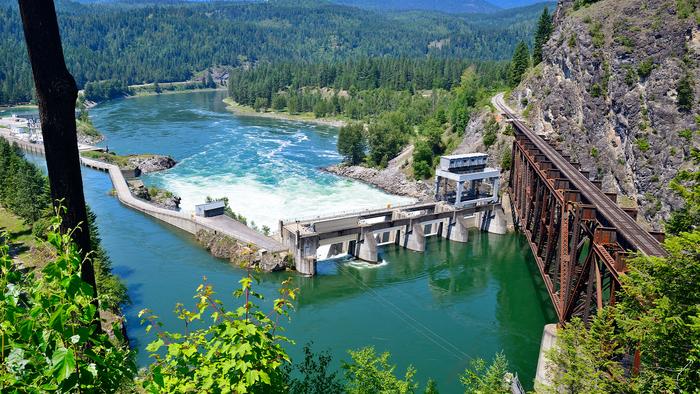Dam constructions have flooded over 1.13 million acres of tribal land in the US contributing to the historic and ongoing struggle against land dispossession for Indigenous peoples in the United States. New research, published in Environmental Research Letters, has identified that a region of tribal land larger than the state of Rhode Island has been submerged by dams in the US. The findings raise concerns about the destruction of ecosystems, cultural heritage, and livelihoods.

Credit: IOP Publishing
Dam constructions have flooded over 1.13 million acres of tribal land in the US contributing to the historic and ongoing struggle against land dispossession for Indigenous peoples in the United States. New research, published in Environmental Research Letters, has identified that a region of tribal land larger than the state of Rhode Island has been submerged by dams in the US. The findings raise concerns about the destruction of ecosystems, cultural heritage, and livelihoods.
The new study shows that dams have significantly contributed to land loss of Native people, a factor that has not been fully quantified until now. Over the centuries, colonial settlers and the federal government have acquired over two billion acres from Native nations through various policies, including forced removal, allotment, and the reservation system. The study considers data from federal Indian reservations and Oklahoma Tribal Statistical Areas (OTSAs) alongside the locations of nearly 8000 dams across the United States and the size of their reservoirs. The research reveals that 424 dams have flooded 1.13 million acres of tribal land in the US.
Heather Randell, Assistant Professor of Rural Sociology and Demography at Penn State University, says: “The consequences of dam-induced land loss are far-reaching. The disruption of aquatic and terrestrial ecosystems not only devastates natural resources but also destroys culturally significant sites. The impact on local communities’ livelihoods and displacement from their ancestral lands is equally severe.”
Recommendations proposed by the research team include the prioritization of dam removal wherever feasible, along with exploring alternatives such as tribal ownership or funding for dam repairs and improvements in cases where removal is not viable.
“In the wake of recent federal legislation addressing aging infrastructure in the United States, it is important to prioritize removing dams that have flooded tribal land,” Randell continues. “This is an opportunity to address historical land dispossession and to respect the sovereignty and rights of Indigenous communities.”
Journal
Environmental Research Letters
DOI
10.1088/1748-9326/acd268
Subject of Research
Not applicable
Article Title
Dams and Tribal Land Loss in the US
Article Publication Date
9-Aug-2023
COI Statement
The authors have declared no conflicts of interest




